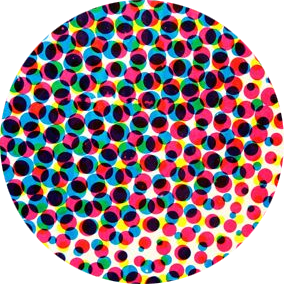Revolution & Assimilation in the Debut of Black Panther

Black Panther debuted in Fantastic Four #52-53 in 1966. As the first Black superhero in mainstream comics, Black Panther bears a heavy representational burden. Creators Stan Lee & Jack Kirby acknowledge that burden and negotiate it—albeit imperfectly. 1/13 #SilverAge

In Fantastic Four #52, T’Challa sends a guide in a futuristic flying machine to invite the FF to his secretive African homeland for a “hunt.” In the Marvel tradition of team-ups, the Panther is a brief antagonist before uniting with the Four against a greater threat. 2/13

The Panther’s true arch-enemy is a pith helmet-wearing colonial invader named Klaw. The choice to debut the Panther in a fantastic jungle setting risks confirming Africa as exotic or savage. However, Lee & Kirby are clearly aware of their participation in certain tropes. 3/13


Expectations are also subverted when Mr. Fantastic declares, “The jungle looks so primitive—so undeveloped! Are you sure we’ve reached Wakandan territory?” To which the Wakandan guide replies, “you would do well to remember—in this land, things are not always—as they seem!” 5/13

The guide then reveals a “man-made” jungle wherein “The entire topography and flora are electronically-controlled mechanical apparatus!” “Even the boulders,” he says, “can be heard to hum with the steady pulse of computer dynamos!” As scholar Adilifu Nama argues, 6/13


Yet Wakanda’s great wealth & technological prowess are dependent on outside interventions: the arrival of vibranium from outer space & T’Challa’s Western education. Prior to T’Challa’s reforms, the Wakandans were “helpless before the withering fire” of Klaw’s invading force. 8/13

In addition, Black Panther only truly becomes a superhero at the urging of the Fantastic Four. In FF #53, T’Challa reveals he created a technological wonderland not for the benefit of his people but as “a lark.” “It was a simple exercise,” says T’Challa, “to test my skill.” 9/13

After avenging his father, T’Challa is purposeless and even considers retiring. Only after the FF clap him on the shoulder & tell him the world needs him does he pledge: “I shall do it! I pledge my fortune, my powers—my very life—to the service of all mankind!” 10/13

Admittedly, Black Panther is similar to other Marvel heroes in needing to pay a penance for hubris. In the pages of “Avengers,” this takes the form of T’Challa abandoning his kingship in Wakanda to experience living as an ordinary citizen in America (specifically, Harlem). 11/13

However, the Panther’s promise to serve “all mankind,” which manifests in becoming the sole Black member of an otherwise all-white, all-American superhero team, can also situate his heroic journey within a context of assimilation & servitude to hegemonic American ideals. 12/13

Ultimately, Black Panther’s debut is well-intentioned but predictably dated, with a limited perspective on the tropes it reckons with. These comics’ greatest legacy may be laying a foundation for future stories that more convincingly convey Wakanda’s revolutionary promise. 13/13
